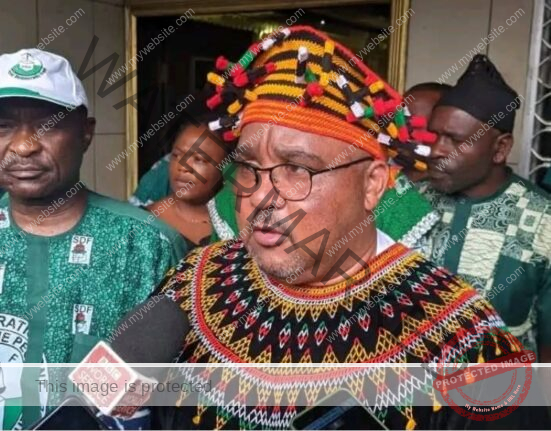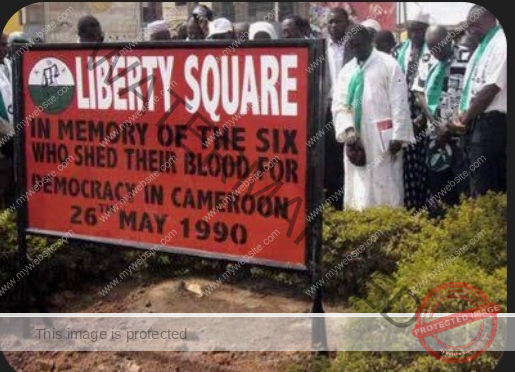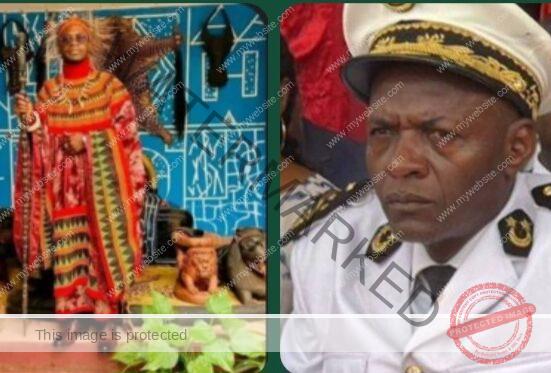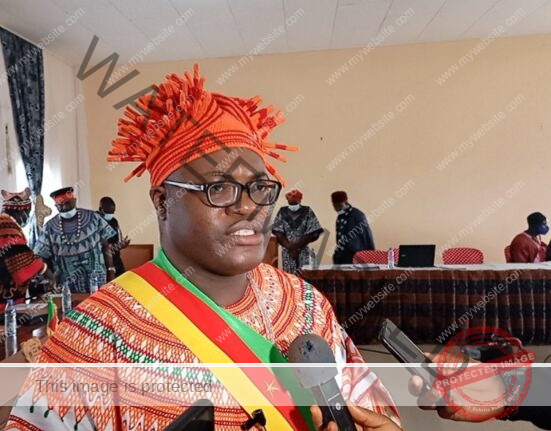From Sisiku’s rendition, to Chris Anu’s collapse, to Marianta’s isolation, to Kometa’s disappearance, to Ayaba’s incarceration — every attempted decapitation has had an unintended consequence. By removing those most willing to compromise, most eager for money, or most easily deceived, the enemy has ironically purified the revolution.
The Independentist Editorial Desk
Destabilisation is not an accident of history — it is a strategy. Every attempt to decapitate Ambazonia’s leadership has carried the fingerprints of Biya and his foreign backers.
Since the extraordinary rendition of Sisiku Ayuk Tabe and his cabinet in 2018, Paul Biya, France, and Britain have deployed numerous traps and manipulations to suffocate the Ambazonian quest for independence. Yet in the process, they have inadvertently exposed opportunists, removed traitors, and cleared the path for patriots to lead. Ironically, what was meant for destruction has become purification.
The Rendition of Sisiku Ayuk Tabe
Sisiku Ayuk Tabe was deceived into returning to Nigeria under the pretext of a financial arrangement for a federation. Instead, he was trailed by French operatives posing as journalists. Shortly after, French President Emmanuel Macron visited Nigeria, where a secret deal was struck. Soon after, Sisiku and his cabinet were arrested and renditioned to Yaoundé. What was presented as a Nigerian security operation was, in reality, a Franco-Cameroonian bargain designed to behead Ambazonia’s leadership.
Chris Anu: From Firebrand to Fallout
Chris Anu once styled himself as the loudest voice of the Ambazonian revolution, but history has revealed him as one of its most tragic opportunists. He repeatedly lied about secret deals, spreading disinformation to tarnish Dr. Sako’s reputation, while pressuring him to resign on multiple occasions. He even attempted to impeach him — all in vain.
Anu claimed to have opened embassies, promised heavy funding for the war, and boasted of international recognition. In reality, none of these promises materialised. His grand ambitions collapsed into farce, reduced to running a TV show as “Anchor Comrade” — a program he could not even sustain financially.
His final humiliation came when he returned to the United States and publicly admitted that his luggage and computer had been seized by border police. The question remains: what happened to all the embassies he claimed to have opened across the world?
His desperation reached absurd levels when he tried to forcefully remove Dr. Sako and even went so far as to successfully copyright the label “Interim Government.” But Dr. Sako outmaneuvered him, legally registering the Government of the Federal Republic of Ambazonia and ensuring institutional continuity. From that moment, Chris Anu effectively declared himself an opposition by default — exposing his lack of strategic thinking.
In truth, Anu’s downfall revealed more than personal failure. His actions bore the fingerprints of manipulation from Yaoundé and French operatives — handlers as dimwitted as their willing pawn. Today, he has retired into irrelevance, remembered less as a leader and more as a cautionary tale of betrayal and wasted potential.
Marianta and Elvis Kometa: From Influence to Irrelevance
Marianta, niece of Dion Ngute, believed she could form her own party. Instead, she drifted into political wilderness, abandoned and isolated. Elvis Kometa, once a powerful president of the Restoration Council, is today an unknown entity, stripped of influence and relevance. Both are examples of how opportunism ends in silence.
The British Trap
British operatives attempted to lure Dr. Sako into personally traveling abroad to inspect supposed supplies. This was a mission that should have been assigned to technicians familiar with operational characteristics. The goal was to place him in a foreign jurisdiction where he could be compromised. By resisting, Dr. Sako exposed the shadow games against him and preserved the integrity of the struggle.
The French Bait: Biafra and Terrorism
French operatives also tried to entangle Dr. Sako in terrorism charges. They attempted to channel a financial “gift” through Ambazonia’s accounts, designed to link him to the Biafra resistance. Had he accepted, Ambazonia’s government would have been branded a terrorist organisation.
Dr. Sako refused. But Dr. Cho Ayaba embraced the Biafra connection, despite warnings.
One of the most revealing episodes of manipulation was precisely this alliance with Biafra. At a time when Ambazonia needed to project its legitimacy under UN resolutions, Ayaba chose to associate with a movement already stigmatized by Nigeria and labelled as “terrorist” by security services. This was a gift to Yaoundé and Paris. Suddenly, the Ambazonian cause, distinct and lawful, was tied in international perception to an armed secessionist conflict across the border.
For Biya, this was perfect propaganda. He could now claim Ambazonia was a hub of “cross-border terrorism,” not a legitimate political movement. France amplified the narrative in Europe, using it to block Ambazonian diplomacy. What Ayaba saw as international visibility served Yaoundé’s agenda by delegitimising the struggle, isolating Ambazonia diplomatically, and bolstering Cameroun’s propaganda.
Yaoundé and France then elevated Ayaba as their proxy, presenting him as the face of the revolution to fracture the movement. But the plan collapsed: today, Cho Ayaba sits incarcerated in a Norwegian jail, poised to sing like a canary and expose his benefactors — La République du Cameroun and its French sponsors.
Britain’s Federalism Game
Britain’s duplicity has been consistent across the decades. During decolonisation, London abandoned federalism and instead pushed Ambazonia into annexation under French Cameroon’s control. It was a betrayal that handed over Ambazonia against the spirit of UN Resolution 1608.
Today, with the Biya regime collapsing under corruption and fatigue, Britain has strangely returned to federalism. But not as a path to liberty — rather as a way to please France. By reviving federalism, Britain hopes to keep Ambazonia under French Cameroon’s orbit, just as it was designed in the 1960s.
They welcomed Agbor Balla in London with a red-carpet reception, presenting him as a federalist voice of reason. But Ambazonia and Dr. Sako quickly understood the game. Britain’s hospitality was not recognition of sovereignty but a strategy to derail independence, to dilute Ambazonia’s case for freedom and keep Paris in charge.
Purification Through Betrayal
From Sisiku’s rendition, to Chris Anu’s collapse, to Marianta’s isolation, to Kometa’s disappearance, to Ayaba’s incarceration — every attempted decapitation has had an unintended consequence. By removing those most willing to compromise, most eager for money, or most easily deceived, the enemy has ironically purified the revolution.
Recently, the government has been further strengthened by the inaction of certain members such as Emmanuel Tita, Kizito Elad, and Irene Ngwa. Their irrelevance has been exposed by the effectiveness of the government free from internal friction, and by its growing popularity at the homefront. What was once a source of division has become a source of unity, allowing the government to focus squarely on the mission of liberation.
The vultures thought they were destroying the struggle. In reality, they pruned it. They cleared out the opportunists and left the battlefield to patriots who cannot be bought or trapped.
Conclusion
History will record that Biya, France, and Britain sought to suffocate Ambazonia through deception, corruption, and betrayal. But instead, they strengthened the very cause they wanted to kill. Their traps exposed traitors, removed opportunists, and elevated leaders with true resilience.
The vultures that circled over Ambazonia’s struggle have instead helped Dr. Sako excel in diplomacy — ensuring that Ambazonia’s march toward freedom is led by patriots and not profiteers.
The Independentist Editorial Desk





















Leave feedback about this